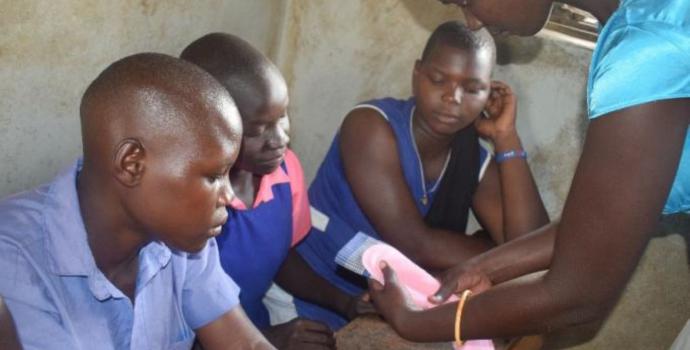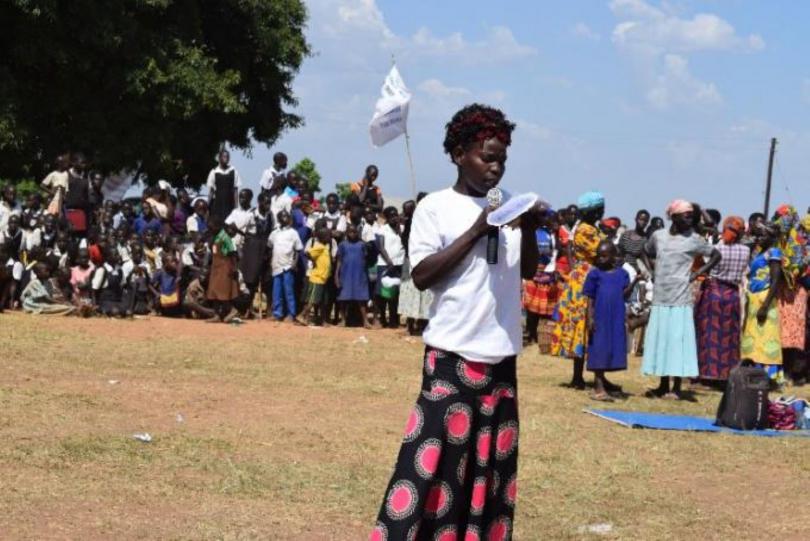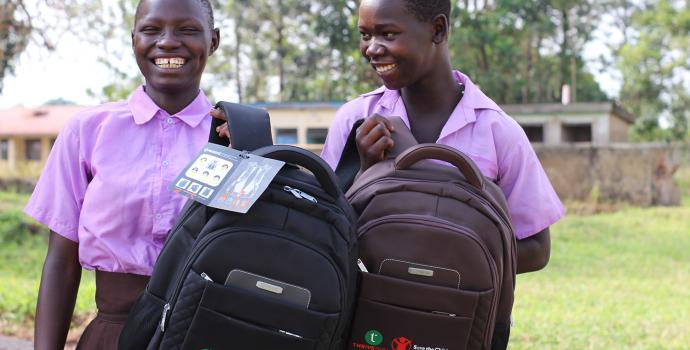Youth advocates help girls stay in school

Girls in northern Uganda often tell us that one of the main reasons they drop out of school is the lack of sanitary materials and facilities when they start menstruating.
In Olya primary school, in Amuru district, it's one of the main reasons why enrolment drops from 88 girls in the sixth year to just 13 girls in the seventh year. "Many of the girls stay away for at least four days a month because of the stigma," says Ms Aol Sarah, a teacher at the school.
22-year-old Patricia Agnes Laker set out to change that in her community.
Patricia herself had to drop out of secondary school as her father – a teacher – could not afford the fees for her to continue. It's made her passionate about girls' right to education.
In 2016, a village meeting nominated her to enrol in Save the Children's Youth Empowerment Programme, which supports young people to advocate and campaign on issues affecting their lives. Funded through a partnership with the Italian jewellery company Bulgari, the programme challenged Patricia's naturally reserved nature. Soon she was speaking in public and lobbying local leaders.
"As a youth advocate I had to speak at village meetings and mobilise other youth in the village for the plight of young girls who have been molested," she says.
Patricia set about advocating for the right of girls to stay in school, drawing on her own experiences to highlight the barriers that force them to drop out.
At the annual Women's Day events in Amuru district, her fellow youth advocates selected Patricia to give a speech to the politicians, cultural and religious leaders in the audience. She spoke passionately about the cycle of poverty facing young people like her, and how lack of menstrual hygiene management forces girls out of education and into early marriages and teenage pregnancies. Girls cannot afford the pads, or the schools do not have adequate facilities for girls on their periods, and many girls face teasing or bullying when they start menstruating.

Above: Patricia gives a speech calling for more support to keep girls in school
Local MP Lucy Akello was so impressed by Patricia's speech that she offered to provide 1,400 Re-Usable Menstrual Products (RUMPs) to distribute to local schools.
Girls in the final years at Abakolodi school say the new pads came at a crucial time, as they prepared for the national exams while worrying about managing their menstrual hygiene.
"Many girls cannot even afford underwear, so that time of the month will cost them their classes," says 17-year-old Agenorwot Fortunate, the school's head prefect and an aspiring politician. She says she always tries to attend class but finds it difficult when she's on her period as there are not always private places to go and change.
Read more: Youth campaign for an end to child marriage
Save the Children also teaches the pupils how to make their own reusable and affordable pads, and educates the whole class on menstrual hygiene – including the boys.
One of them, Okello Wilson, says being included in the classes has made him understand the importance of supporting his classmates and sisters when they are on their monthly periods. "We make the pads for the girls when they come to school, so that they have enough throughout the day," he says.
The menstrual products that Patricia's advocacy skills helped secure are making a huge difference to girls' lives and helping them to stay in school. But her work continues. Patricia is now spearheading a bi-monthly female learners' meeting, where girls are given an opportunity to talk about their health and experiences.
Together they continue to advocate for lasting change.




